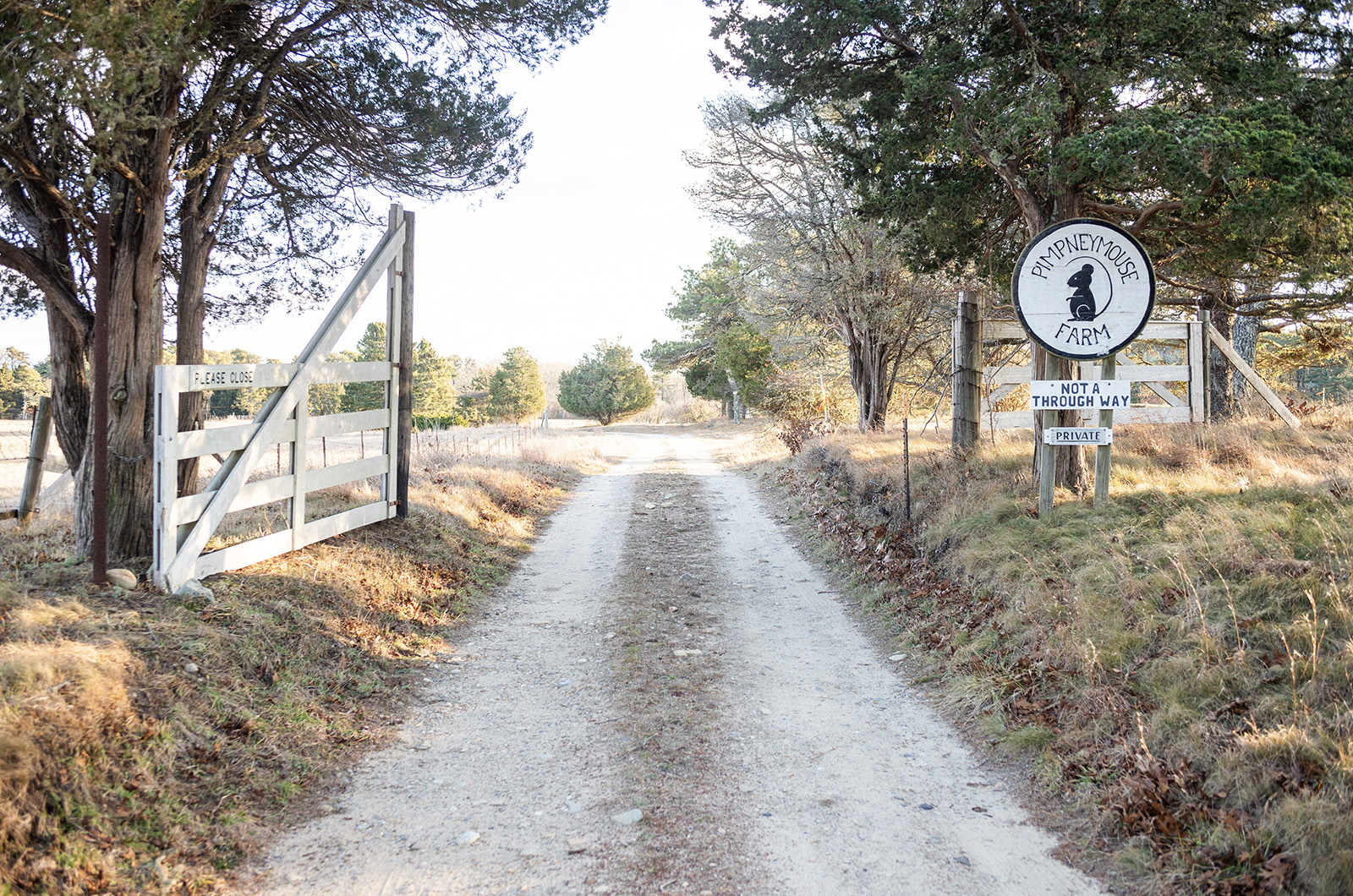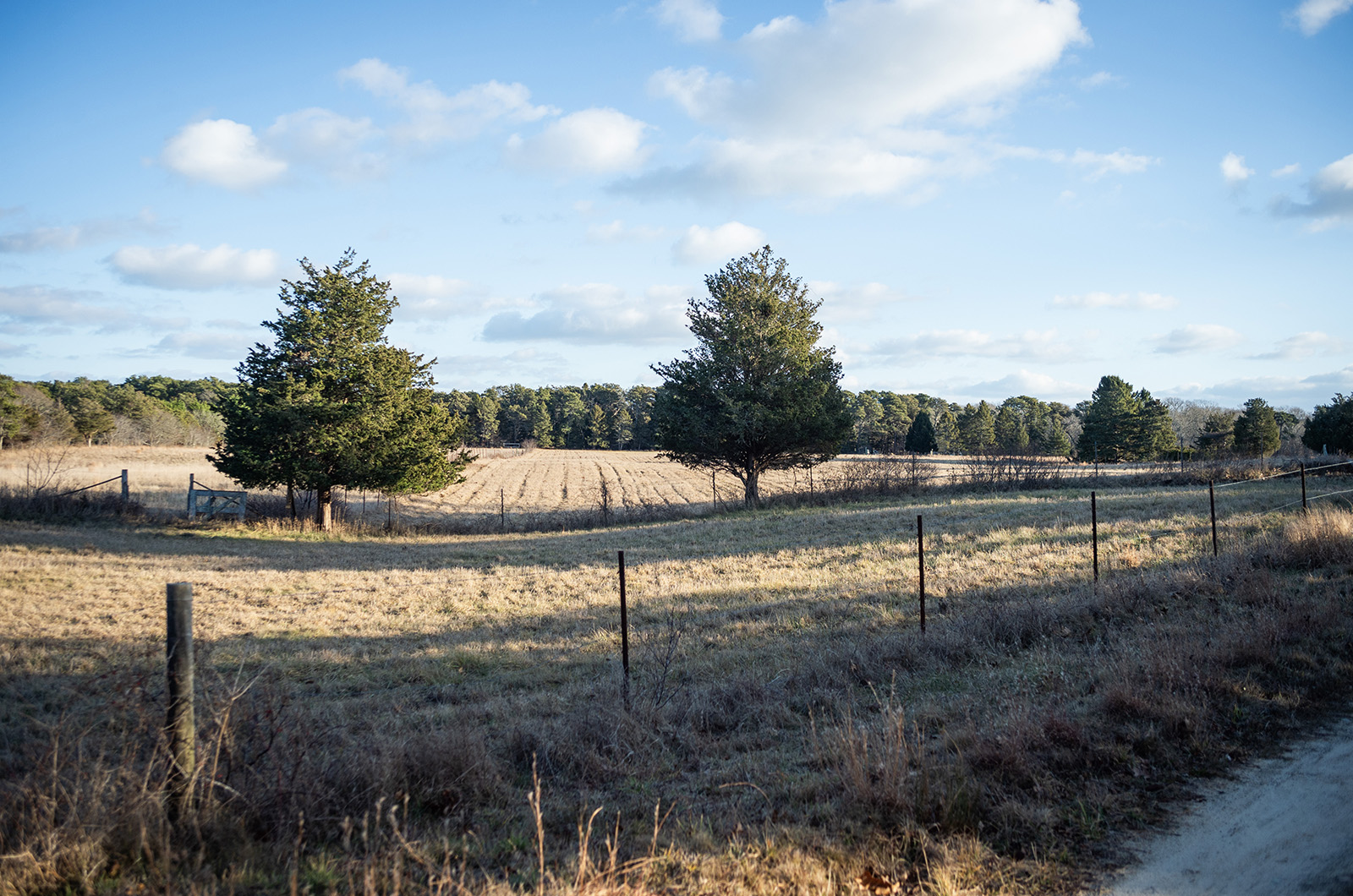A pair of conservation groups late last month purchased a century old coastal farm on Chappaquiddick with the plans to preserve the historic property and open new trails.
The Martha’s Vineyard Land Bank and Sheriff’s Meadow Foundation bought a majority of the Pimpneymouse Farm property from the descendants of the Potter and Slater families for $13.78 million. Of the 217-acre property, 171 acres will be put into conservation.
The farm, started in 1932 by Charles Welch, is on the eastern-facing shoreline of Chappaquiddick and touches Poucha Pond. The land bank and Sheriff’s Meadow also received $1.25 million from a state grant to complete the purchase.
“The property has something like 18 different [endangered] fauna, flora, birds, woodlands, things like that,” Stephen Potter, the grandson of Mr. Welch, said. “There’s an enormous amount of important species that are affected and by preserving this property, we’re making a huge contribution to that.”
The Potter family decided to sell part of their land over a year ago because many of them no longer live on the property and don’t have time to take care of the land. Mr. Potter said the family will keep about 35 acres on the west side of the farm where they have housing.
His mother, Edith (“Edo”) Potter was one of the earliest leaders of conservation on the Island and sat on the Edgartown select board. She managed the farm for 50 years and wrote The Last Farm on Chappaquiddick about the history of the farm before she died in 2018.
Ms. Potter wrote in her book that the name for the farm came partly from a Native American friend who told her “pimpney” meant “little” in his language, and partly from her father’s observations of mice running around the land in the farm’s early days. Only the family’s land will remain under the name Pimpneymouse Farm.
James Lengyel, the executive director of the land bank, said the land bank’s property is divided in half, a 56-acre woodland forest and a 30-acre agricultural field. The land bank named the woodlands Poucha Pond Reservation and will keep the original name the family called the agricultural land since its founding, Trentfield.
“What the land bank will do is issue a request for proposals and see if there’s anybody out there who would like an agricultural lease,” Mr. Lengyel said.
The land bank plans to create trails including an extensive loop that will stretch through Poucha Pond Reservation, Quammox Preserve, Three Ponds Reservation and Tom’s Neck Preserve. Another trail will connect Dike Road and Wasque Road.
The land bank property won’t be available to the public for at least a year. The Sheriff’s Meadow property, which hasn’t been named, is planned to open this fall.
Adam Moore, the president of Sheriff’s Meadow, said his organization plans to create many trails, some which use existing paths. The foundation will create four-to-six vehicle trailheads on the Dike Bridge Road where there will be signage directing people to parking and hiking trails.
Sheriff’s Meadow plans to establish some habitat for rare plants, including for the bristly foxtail plant, in the meadow and wooded area on its property. It will also keep a watchful eye on the invasive southern pine beetle, which is harming pitch pines in Wasque.
Mr. Moore said Ms. Potter’s book reports that the oldest skeet shooting field in America sits on the Sheriff’s Meadow land and the foundation will work with the Martha’s Vineyard Gun Club to have events there once or twice a year.

This is only the third time the land bank and Sheriff’s Meadow have joint-purchased land. The first was when they purchased Red Gate Farm, now known as Squibnocket Pond Reservation in Aquinnah, from Caroline Kennedy and Edwin Schlossberg for $27 million in 2021. The second was David Ames’ property on Chappaquiddick.
Both Mr. Moore and Mr. Lengyel, said the Island will assuredly see more partnerships between the two organizations in the future.
“From our point of view, the public money from the land bank helps stretch the private sector philanthropy further than it could otherwise go…” Mr. Moore said. “I’m sure there’ll be other projects that are significant enough where we ought to take them on together, and I’ll look forward to those.”
Mr. Potter said the family started to consider selling the land more than 14 years ago when Mr. Lengyel sent a letter in 2010 offering to help preserve it.
The farm was originally used for duck hunting by Poucha Pond, but over time the family produced a multitude of goods including milk, cream, eggs, chickens, seasonal vegetables and fruit which founder Charles Welch would deliver door-to-door in a bright red truck.
The final pages of Ms. Potter’s book discussed the future of the farm which she wrote would be contingent upon the wishes of remaining family members.
“I wish that everything could remain the same…” Ms. Potter wrote in her book. “It is a very special corner of the world, worth preserving for future generations.”
Her son said with the purchase, the family honored her wishes in the best way they could. Mr. Potter said the family is elated that their historic land will be preserved for years to come, although transferring ownership has been bittersweet.
“We kept the farm the same,” Mr. Potter said.








Comments (8)
Comments
Comment policy »